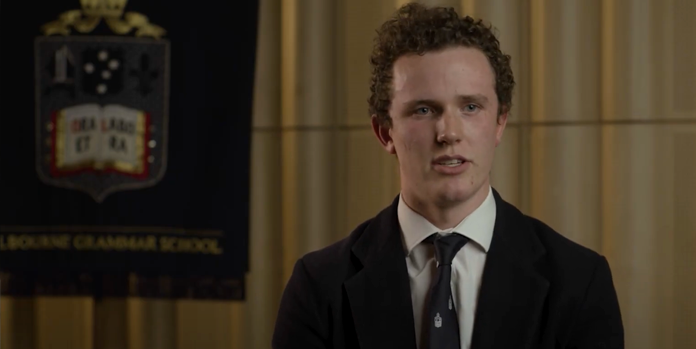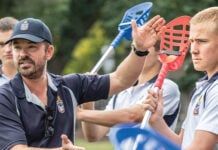The Sir Kingsley Norris Oratory Competition is an annual public speaking event held in the Senior School at Melbourne Grammar School. Boys compete by composing and presenting a lengthy speech on a topic of their choosing.
This year’s winner of the Senior competition (Year 11 and 12), Felix Archibald, mused upon the problem of identity. A condensed version of his speech is presented here.
How often have you declared that you know someone? At countless social gatherings, each of us are asked questions like “do you know Felix?” and we hastily respond in the affirmative. And yet, what would it truly mean to know someone? We are prone to treating people as if they are a subject like mathematics. Our language reveals that we consider knowing people and knowing things alike – we know Felix just like we know the times tables.
The hitch is that we humans are not subjects in the sense of scholastic content, we are subjects in the sense of a rich psychological interior; yet sometimes we don’t treat people like the latter. Frequently, we judge people by how they behave, by a test result or a comment ten years ago. On this model of thought, we are not so much human beings as human doings, defined by our extrinsic not intrinsic character. The deficiency of this genus of judgement is that, in behaviour, we find only the broken echoes of character. That which you do and achieve is not an accurate measure of the state of your heart.
At this time of the year, in which each of us is consumed by examinations (I know I am!), performance reviews or quarterly earnings, it’s important to remember that character and behaviour are distinct. ATARs, for instance, do not encapsulate the fruitfulness of an education because we cannot quantify the orientation and calibration of the soul. Not only are we too rash to judge someone by their failure, in equal folly we construe someone’s victory as an exemplification of their character. Kipling intimates that we should treat “triumph and disaster” as “imposters just the same”.
Such insight echoes the wisdom of Greek tragedy – we can be good and fail, nevertheless. There are ceaseless stories of people of noble character who were struck down by the caprice of circumstance. Often, this plays out behind the scenes, and we never come to know with what they were dealing; we never know the veiled explanations behind their path in life. Yet we continue to proclaim that we ‘know’ them.
In my view, comprehensive knowledge of another human is an infeasible project. Knowing their shoesize cannot tell us what it’s like to be in their shoes; understanding another is our best approximation. I believe that understanding is engendered by conversations of substance and truth, which penetrate beneath the meritocratic soundbites of a particular task or exam question.
So, perhaps we could all do better to peer beneath the murky façade of an outcome and sit down for a meaningful conversation with a friend, colleague or peer which more truthfully reveals their character. Then, perhaps, we could candidly recount that we ‘know’ them.
Alas, the frailty is to blame, not we
For such as we are made of, such we be – William Shakespeare
Felix Archibald
Year 12



